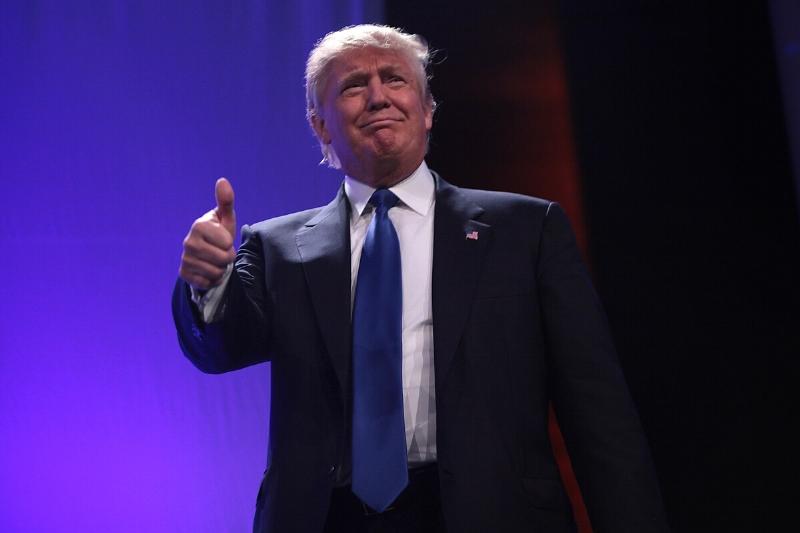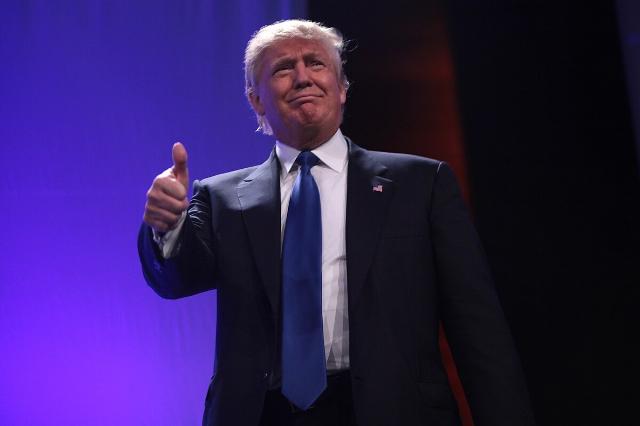


He’s sending in the National Guard; he’s firing federal bosses -- the turbulence of Trump’s second administration continues, with his “resistance” still in disarray.
And although the White House's policy maelstrom has made things less predictable for American businesses, there's one big lesson the executive suite and middle management should learn from the president's strategy: don’t sweat the small stuff.
In corporate America, you can blow a quarter’s profits and still keep your job, but a stray typo is treated like a criminal offense. As a business analyst you’re expected to lose hundreds of hours of sleep over your presentation deck -- heaven help you if you use the wrong font or if your table’s borders aren’t perfectly aligned.
It’s no wonder why ordinary people -- the kind who wear jeans to work -- never even get an interview for these kinds of jobs. The professional class obsesses over the least consequential details like formatting, even while skimming past the most important issues, like the core philosophical underpinnings of their business strategy. They’ll “circle back” on commas, but rarely take a hard stand on the substance of a decision.
When something truly controversial arises, their instinct is to hide it under a fog of corporate jargon.
Consider the apology issued by consulting giant McKinsey & Company in December for its role in the opioid epidemic, following a legal agreement to pay $650 million in damages, in which the firm highlighted how it “significantly enhanced our risk management processes” by “introducing industry-leading client service policies.” Those words mean practically nothing, and that’s the point -- the less they say, the safer they are. Shareholders and employees alike are kept in the dark, and everyone pretends this is leadership.
But in actuality, this is public relations as performance art. It creates the illusion of competence, discipline, and harmony, all while ensuring that nothing concrete ever happens. The boardroom mindset prioritizes risk management over results. Innovation disappears, as they simply manage stagnation.
Donald Trump’s political operation is the polar opposite. Rarely does the president appear to coordinate talking points with his press secretary, Karoline Leavitt, to ensure that every word lines up. If anything, the communications flow is gloriously unchoreographed. One day, Trump drops an all-caps Truth Social post calling someone “THE WORST,” while an administration official offers a mild, diplomatic statement on the same topic.
Rather than treating this as a PR failure, Trumpworld treats it as proof of authenticity. The “flood the zone” approach -- popularized by Trump allies like Steve Bannon -- embraces the chaos of mismatched wording and personal style.
 This strategy rests on something corporations would be wise to learn: the unifying factor isn’t identical language -- it’s a shared mindset. A senior advisor, a podcasting congressman, and a grassroots activist don’t need to recite the same bullet points. They just need to make it clear, in their own voice, that they are fighting for the same cause.
This strategy rests on something corporations would be wise to learn: the unifying factor isn’t identical language -- it’s a shared mindset. A senior advisor, a podcasting congressman, and a grassroots activist don’t need to recite the same bullet points. They just need to make it clear, in their own voice, that they are fighting for the same cause.
In other words, corporate America needs to learn when something is “good enough.” Call it the B+ Rule. Small inconsistencies aren’t proof of incompetence, they’re proof of authenticity, and exact wording matters far less than the fact that the people in charge are pushing in the same general direction.
And as hostile media love to re-emphasize, Trump prizes loyalty above all. It’s not about perfect attendance at the daily message meeting. It’s about whether you stood with him when it counted: through two impeachments, various indictments, and even an assassination attempt. Those who stay through the roughest patches earn his trust, his endorsement, and his political protection.
The professional class sees this as sinister. But it’s really just another lesson in human nature. The people we choose to keep in our inner circles -- whether in business, politics, or everyday life -- shouldn’t be the ones who nail every line in the company handbook or never offend us. They’re the ones we trust to have our back when it matters.
In our current era of constant political conflict, Trump’s approach to politics works precisely because it violates every HR instinct. It’s confrontational, personal, and messy, but underneath the bluster is a surprisingly disciplined philosophy: anti-perfectionism is a superpower.
Trump understands that demanding lock-step messaging from every surrogate, every time, paralyzes an organization. Better to get a B+ from ten people today than an A+ from one person next week.
This willingness to tolerate imperfection accelerates the pace of action. It keeps allies engaged, avoids bottlenecks and ensures the conversation never drifts too far from the issues he wants to dominate. In the “attention economy”, speed and volume often matter more than polish.
Trump bets on momentum. He trusts that moving boldly -- even imperfectly -- creates its own luck. His political career is a case study in this principle: survive enough storms and eventually the storm becomes your natural habitat.
Maybe the Trump administration will end with record-high approvals and a Republican successor in the White House. Or maybe it will collapse in a tangle of scandals, as his first term nearly did. What’s certain is he won’t go down for a lack of trying.
And that may be the most important lesson corporate America could learn from this president: a B+ with momentum will always beat an A+ trapped in committee.
Sam Raus is the David Boaz Resident Writing Fellow at Young Voices, a political analyst and public relations professional. Follow him on X: @SamRaus1.
Image: Gage Skidmore
